The Power of “AND”: At Bloomberg, Open Source and Corporate Philanthropy Work Hand-in-Hand
June 25, 2025
As an open source-first company, Bloomberg believes it is imperative to be an active adopter, contributor, and funder of the open source software ecosystem. Open source powers everything from financial systems to modern public infrastructure. Yet, this critical digital infrastructure remains chronically under-resourced, sustained by aging maintainers and unbalanced corporate engagement. While many contribute financially — often through donations to foundations that support governance and infrastructure — this alone is not enough to address systemic vulnerabilities caused by the shortage of engaged maintainers. To ensure the long-term viability of the open source ecosystem, there must be an industry-wide shift to a new strategy.
Most companies view open source as a choice between business value or public good. This is a false dichotomy. At Bloomberg, the Open Source Program Office (OSPO) and Corporate Philanthropy teams have been working hand-in-hand for years on a transformative approach: What if the future of open source relies not on choosing between profit and purpose — but integrating them both to ensure its survival?
Francesca Romano of Bloomberg’s Corporate Philanthropy team says, “Philanthropy and open source share the same fundamental goal of advancing the public good. When companies align these efforts, they can strategically reinforce and amplify one another. This integration opens up new avenues for innovation, collaboration, and deeper community engagement.”
Bloomberg embraces philanthropy as a core component of its open source strategy, recognizing, as the company’s founder, Mike Bloomberg, often notes, that “it’s good for business because it’s good for people.” That philanthropic mindset and culture of giving back is deeply ingrained throughout the firm’s operations – including its approach to open source – going beyond financial contributions to strategically mobilize people, resources, and expertise in service of community-wide open source sustainability.
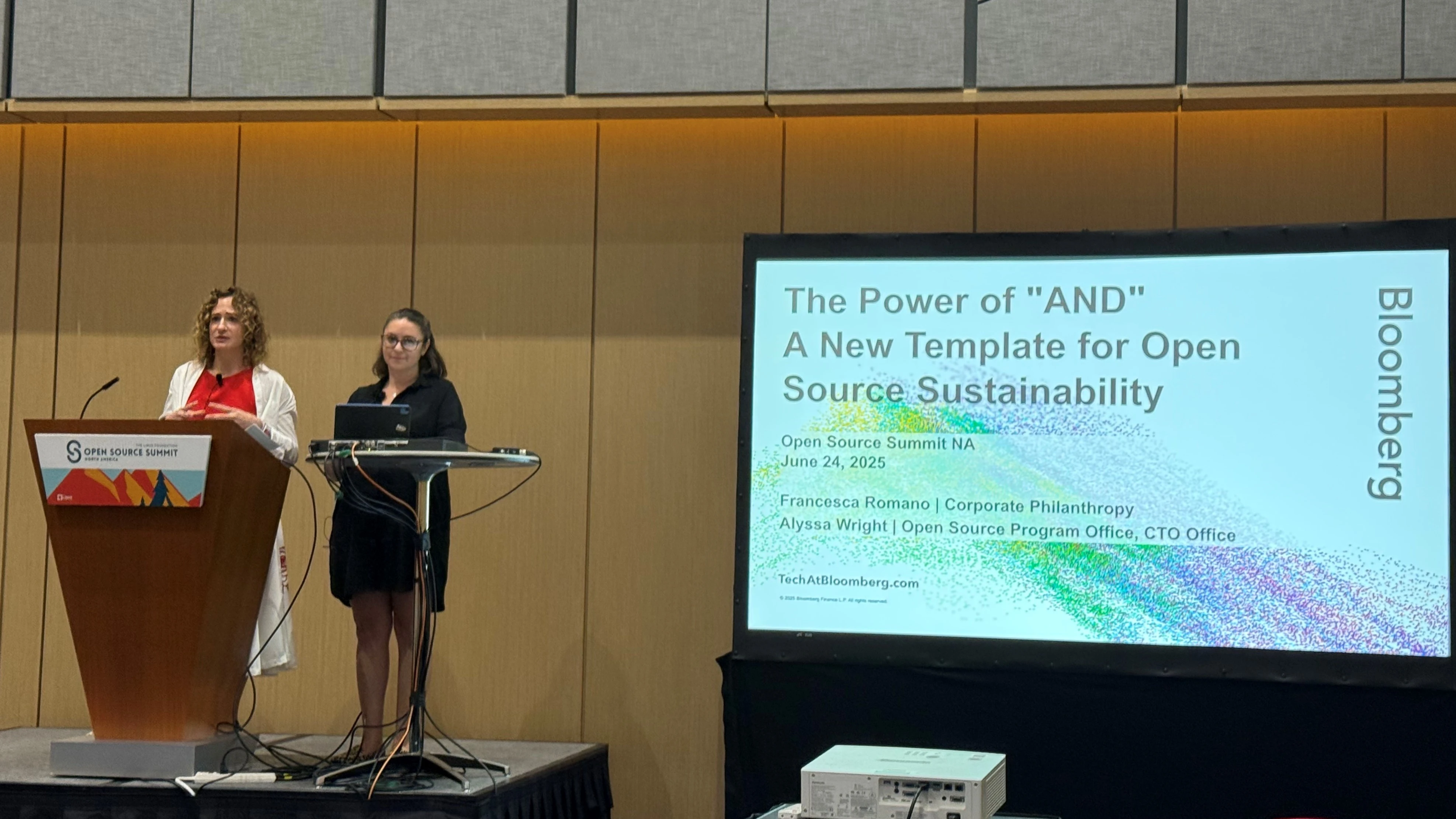

Moving beyond transactional benefits
“By embracing corporate philanthropy as a partner, we are better equipped to prioritize long-term goals for our open source programs,” shares Alyssa Wright, who helps lead the OSPO in Bloomberg’s Office of the CTO. “Together, we can ensure the sustainability and resilience of critical digital infrastructure and enable a proactive focus on community health. This entails fostering vibrant, inclusive communities of contributors, avoiding maintainer burnout, and continually injecting and training new, purpose-driven open source contributors.”
In essence, Bloomberg’s integrated approach sees philanthropy as a strategic driver of innovation, talent development, community engagement, mutually beneficial relationships, and long-term sustainability.
By infusing philanthropy into the company’s open source strategy, Bloomberg has been able to create new avenues to identify, attract, develop, and retain people who are not just a good skill-fit, but also a good culture fit. Under Wright and Romano’s leadership, their teams have created more structured environments for open source volunteering and knowledge-sharing forums to provide people with the mentorship they need to get started or to tackle more challenging contributions. This model directly addresses the systemic risks mentioned earlier, such as infrastructure vulnerabilities and the fragility posed by maintainer shortages, through active, meaningful, sustained contributions from corporations and their most valuable asset – their people.
Romano states, “Companies have a powerful opportunity to strategically deploy, incentivize, and empower their talent to sustain and advance open source. When employees are supported in contributing their skills, it drives innovation, strengthens communities, and deepens the company’s connection to the broader tech ecosystem.”
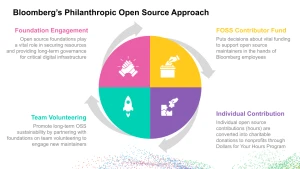
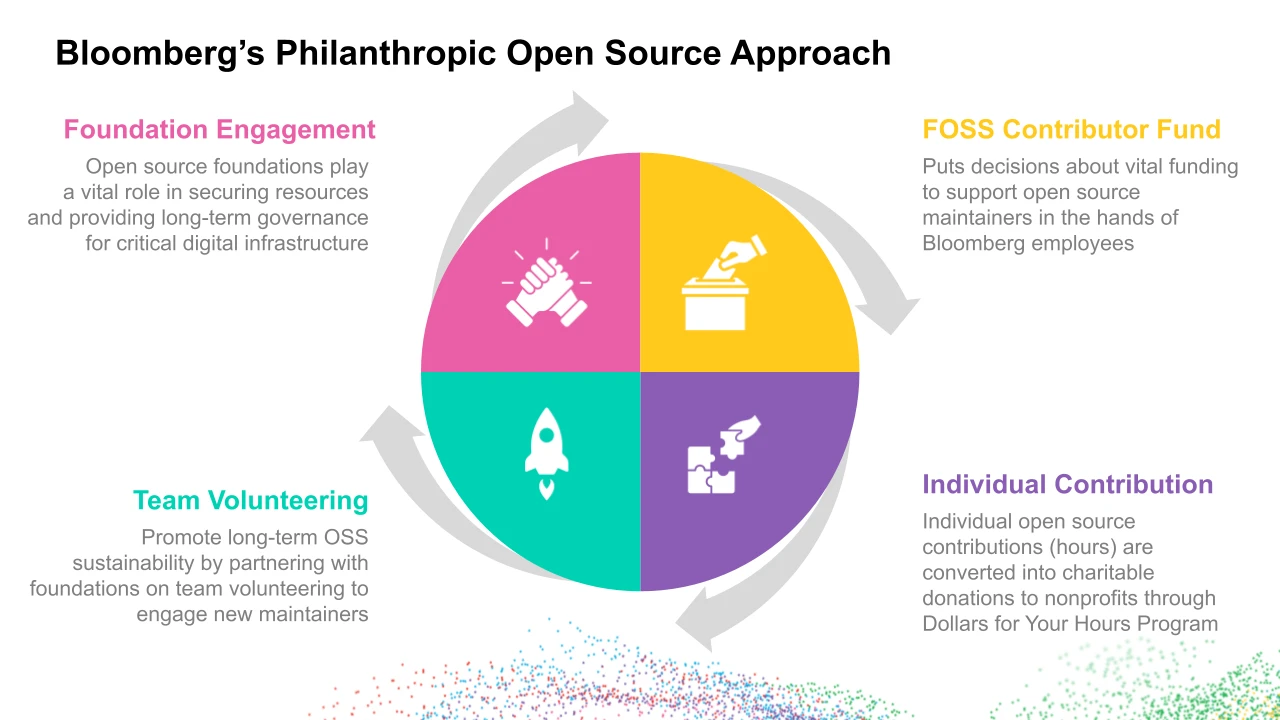
Recognizing code contribution as volunteerism
Part of embracing this broader view of open source required expanding what volunteering meant at Bloomberg.
“Philanthropy can take many forms, and one of the most impactful is using your professional skills to give back,” says Romano. “Whether you’re an engineer, a designer, or a coder, contributing your expertise—like through open source projects—can help tackle pressing issues and support communities working toward meaningful progress.”
To put this into practice, Bloomberg expanded its long-standing Dollars for Your Hours program—which enables employees to convert personal volunteer hours into company-funded donations to approved nonprofits—to also recognize open source volunteerism. Open Source Dollars for Your Hours launched in 2023, applying the same incentive structure to open source contributions made outside of an employee’s core responsibilities. When engineers reach a set threshold of hours, they can request a donation to a nonprofit they care about—transforming their technical work into social impact.
Engineer Jason Williams, who works in Bloomberg’s EMEA Headquarters in London, applied the Open Source Dollars For Your Hours program to his volunteer work in the JavaScript community. “It’s a great feeling contributing to open source projects that we use, in addition to having funds donated to other causes I care about,” says Williams.
This way of thinking can address an existing, unsustainable reliance on volunteer maintainers who get burnt out frequently and are not incentivized to continue maintaining projects. This approach reinforces that individual contributions made outside of formal job responsibilities are not only valuable but can also be a powerful driver of social good.
Supporting foundations and the open source ecosystem
Like many companies, Bloomberg supports open source foundations, creates upstream developer workflows, sponsors critical open source initiatives, and empowers engineers to become leaders within the communities around open source projects the company uses. While the business case for open source engagement is clear – access to innovative technologies, reduced development costs, and exposure to a wider talent pool – Bloomberg’s OSPO team recognizes additional skills-enriching, culture-building values that supporting open source foundations brings to the company.
Bloomberg participates in and supports more than 25 technology community organizations and open source foundations, fostering an environment of collaboration that extends beyond code and emphasizes teamwork, knowledge-sharing, and problem-solving.
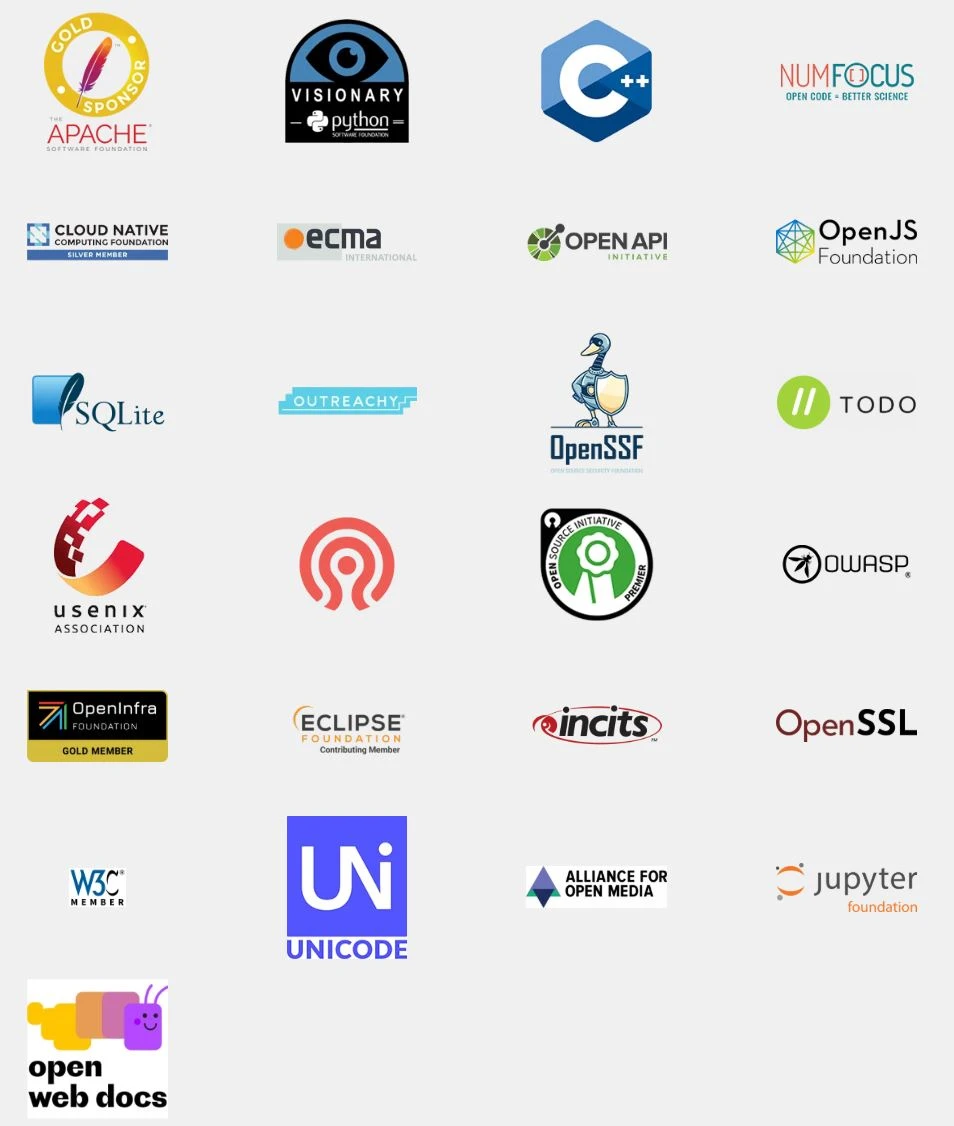

Working directly with open source foundations provides opportunities for professional growth, including leadership and communication skills. “Bloomberg engineers gain experience working in collaborative environments, navigating diverse perspectives, and influencing the direction of open source projects,” explains Wright. “Building relationships with other open source developers across industries also expands their professional networks and opens doors to interesting opportunities.”
Engaging engineers in allocation of funding
Another way the firm aligns open source and philanthropy is by inviting its engineers to help allocate funding to worthy open source projects through quarterly nominating and voting for Bloomberg’s Free and Open Source Software (FOSS) Contributor Fund.
Daniel Stenberg, project founder and lead developer for curl, a Q1 2023 Bloomberg FOSS Contributor Fund grant recipient, states, “Funds are necessary to keep curl afloat and develop it further. They allow us to pay for services, infrastructure, and tools that drive the project forward, and ensure its quality. The Bloomberg FOSS Fund has helped ensure curl’s continued use by billions of people for years to come.”
“The Bloomberg FOSS Contributor Fund helps surface and spread awareness of a wide range of innovative open source projects, provides the projects themselves with the capital they need to maintain or expand, and fosters a greater sense of ownership, responsibility, and pride within our internal open source community,” says Wright.


Mentoring tomorrow’s open source contributors
In addition to contributions that are skills-based and fiscally-driven, some contributions combine both concepts. Bloomberg’s Sustaining Open Source Initiative exemplifies this by encouraging extended volunteering and mentorship. Launched in 2023, the program matches teams of Bloomberg employees with projects hosted by open source foundation partners, providing engineers with mentorship and leadership experience, while also preparing them to become active participants in the open source community.
To date, two cohorts of Bloomberg volunteers, made up of members of Bloomberg’s Women in Technology (BWIT) Community, have partnered with NumFOCUS to contribute to pandas, a widely used open source Python library that provides high-performance, easy-to-use data structures and data analysis tools. Over the course of eight weeks, employees contributed code while receiving guidance from dedicated mentors provided by both NumFOCUS and Bloomberg providing a support network to build a cohesive and engaged community of engineers.
The company’s employees gain valuable experience contributing to critical projects, fostering a further sense of purpose and professional fulfillment. At the same time, it strengthens the broader open source community — an ecosystem with fragile foundations — by offering a more sustainable, inclusive, and collaborative model for participation and support.
“Through the Bloomberg initiative, contributors were connected directly with core maintainers,” explains Will Ayd, a core maintainer of the pandas project. “This helped community members more efficiently identify contributions […] and core maintainers were able to communicate at once with a large group of volunteers, which streamlined communications and helped draw the most value out of limited time.”
Bloomberg has also developed a dedicated mentorship program for first-year college students who are working as summer interns with the company, which encourages a new generation of talent to contribute early and often to open source. This also provides those Bloomberg engineers who serve as their mentors with an opportunity to further develop as managers and leaders.
Amplifying the impact of open source
When exploring new ways to expand on the program, Bloomberg’s OSPO and Corporate Philanthropy team consider the many benefits open source can offer to a variety of stakeholders and society at large. The four areas of impact their model seeks to amplify are:
- Project impact: Open source can provide an innovation launchpad that speeds software development. Ideas can be explored and proofs of concept can be built more quickly, more securely, and with more flexibility. In short: open source makes products better.
Participant impact: Open source helps Bloomberg develop its technologists’ talents. Engineers who feel they are growing their skills are more satisfied in their roles. Encouraging involvement in open source not only improves retention of talent, but also fosters connection through code contribution and community engagement.
Business impact: Open source benefits the bottom line. In addition to immediate cost savings, building with open source accelerates time-to-market and reduces vendor lock-in.
Public good impact: The healthier an open source community — the more users and developers it has — the healthier the ecosystem for continual improvement of quality, reliability, and security that benefits everyone. Healthy open source software ecosystems reduce the systemic risks related to critical infrastructure.

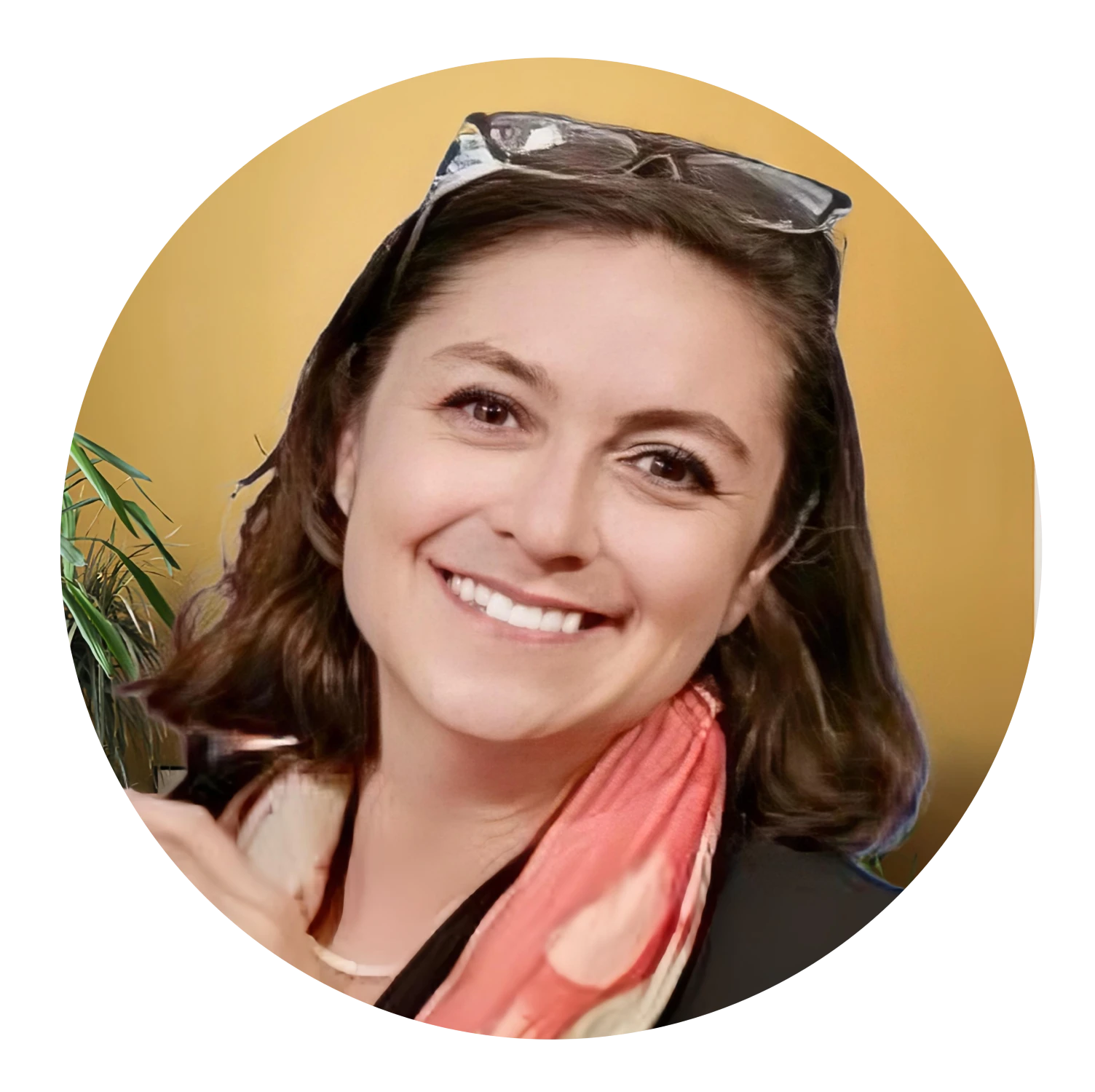
A shared future for open source
Romano emphasizes “Open source offers a powerful model of transparency and collaboration — a blueprint for addressing challenges at scale. To realize its full potential, we must move beyond short-term, transactional support. Philanthropic investment brings a long-term, proactive approach that strengthens the open source tools we rely on — reinforcing our shared responsibility to sustain the digital infrastructure we all depend on.”
By combining philanthropic intention with business investment, firms can scale solutions faster and more dependably. At the same time, the next generation of talent is demanding more from their employers: a sense of purpose, a connection to community, and a clear, authentic commitment to positive impact.
Wright concludes, “Adopting a philanthropic mindset towards open source significantly transformed our approach from short-term transactional support to sustained, strategic impact. We encourage other companies and organizations of all sizes to think differently about what responsibility looks like, and what’s possible when you embed philanthropy into how you support, scale, and sustain open source for the future. If you don’t redefine corporate roles, open source faces decline, risking innovation and stability across industries. There’s an urgent need to shift toward purpose-driven, sustainable corporate partnerships.”